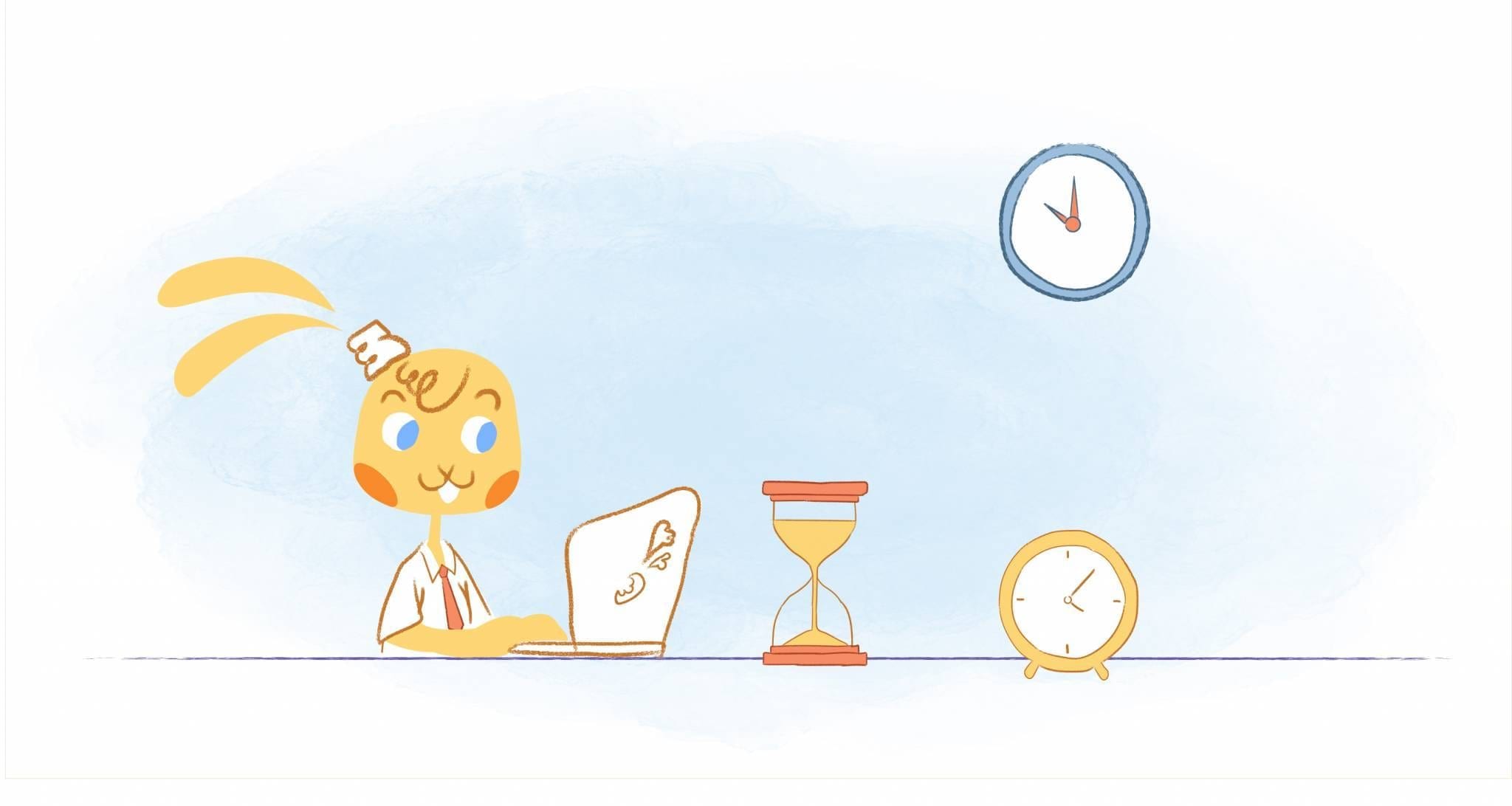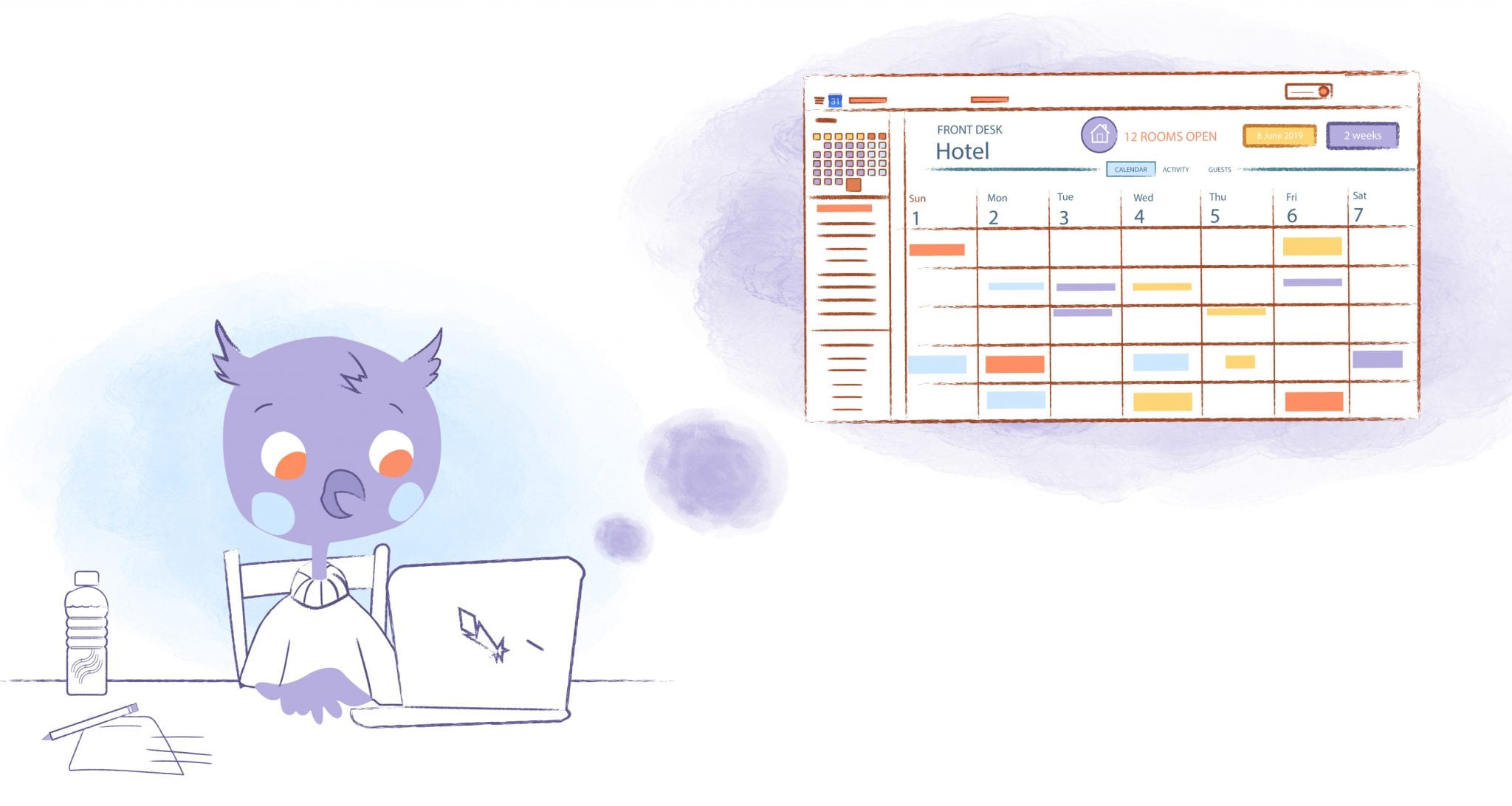

There’s no shame in admitting that you get overwhelmed — it happens to all of us at some point. We only have so much time and energy to attend to all of our personal and professional responsibilities. To make matters worse? Unexpected events can make us feel like we absolutely zero control of our lives. I don’t need to remind you how the COVID-19 pandemic caused upheaval in all of our lives.
How to Take Back Control in an Uncertain World
There is some good news. Even in an uncertain world, each and every one of us has the power to take back control of our lives. And, you can make this possible by taking the following steps.
Use your calendar.
“First, claim a block of time to gain control,” suggests Leo Babauta from ZenHabits. “Yes, it will take an hour or two.” But, you’re not that crunched for time.
“Schedule an appointment on your calendar,” he adds. “If you really, really can’t find the time in your workday, get up early, or do it right after work.” If you put yourself first, you can squeeze this into your schedule.
If you’re still putting this off, just remind yourself that this is essential if your overall health and well-being. But, how can you gain control in such a short amount of time? To start, focus on your goals and prioritize them.
Let’s say that you want to travel more or start your own business. In order to achieve these goals, you have to become more financially stable. From there, you’ll need to devise an action plan, like eliminating debt and earning a passive income, to make this possible.
Make a list of what you can control.
Whether you like it or not, there are a lot of things in life that you have zero control over. Everything from how a family member behaves, the outcome of a sporting event, current weather conditions, or a global pandemic. As such, it’s a waste of time and energy trying to change what you can’t alter.
Instead, write down what you can control. It doesn’t matter if it’s a piece of paper or in an app like Evernote. The idea is that this will help you prioritize your time. And, if you ever fall off track, you can refer to this list or use it as a visual reminder.
Some suggestions would be;
- Your work hours and when you’re off-the-clock.
- The meals that you’ll be eating this week.
- How you’ll spend your downtime, such as cleaning your home, reading, or camping.
- Who you chose to spend time with.
- How to set up your desk and workspace.
- Affirmations and mantras to talk yourself up and restore motivation.
Take out a PPP.
Unless you needed a loan to help your business stay afloat during COVID, this PPP stands for prevention, preparedness, and planning.
- Prevention. One of the most effective ways to avoid uncertainty is to practice prevention. Examples would be taking care of your health so that you don’t get sick or maintaining your vehicle so that it doesn’t break down.
- Preparedness. It would be unreasonable to be prepared for every unexpected scenario. A glaring example of this would be to have insurance or an emergency fund. Another would be adding a buffer between meetings so that you don’t run late.
- Plan. On Sundays, I map out how I’m going to spend my week. Mainly, it’s adding my priorities to my calendar so that they’re scheduled before anything else. At the same time, I also leave chunks of time open so that I can adapt if I have to.
Let it go.
Why is it so difficult to move on from the past? One reason is that it provides certainty. And, if you weren’t aware, this is “one of the six basic human needs and is fundamentally about survival,” explains Tony Robbins.
Another valid reason? We usually don’t remember things too well when there isn’t an emotional attachment.
Whatever the exact reason, getting stuck in the past prevents us from moving forward. And, it jeopardizes our health and happiness.
Thankfully, you can use the following strategies to unchain you from yesterday;
- Identify what’s holding you back and have a clear purpose for moving on.
- Acknowledge your feelings and train them like a muscle to become more positive.
- Condition your mind by feeding it knowledge.
- Create empowering rituals, such as practicing gratitude.
- Revisit your list of what you can control.
- Work on personal growth.
- Surround yourself with positive and supportive people.
- Give back to others.
I’ve also found that mindfulness is a simple way to keep me in the present. And, sometimes when I ruminate about the past, I make plans like booking a vacation.
Manage your emotions and beliefs.
“Too often, we operate from unconscious beliefs—I’m too old to learn a new job skill or No one will ever want to be in a relationship with me—without being aware of how they thwart us from even trying certain things,” write Anthony Rao, Ph.D. and Paul Napper, Psy.D. “When we are driven by unconscious emotions like fear, sadness, or worry, it can lower our energy and make us feel doomed or overwhelmed, which also hurts our agency.”
Agency, according to them, is “the ability to cut through all of what pulls at us, find emotional and physical balance, think more clearly, and advocate for ourselves so we can take a course of action that makes sense.”
“Increasing your awareness of how your emotions and beliefs drive your thinking, influence your behavior, and affect your judgment will help you navigate life with greater confidence,” added Rao and Napper. “While uncovering these inner thoughts and emotions may take effort, being more self-reflective helps you keep grounded by slowing down your thinking process.”
As an example, the next time you feel yourself getting angry, “Don’t automatically accept that harmful emotion or, worse, dwell on it.” Rather, “pause and question it,” by asking;
- Why am I feeling this way?
- Am I pressuring myself too much?
- Maybe my beliefs and expectations need some adjusting.
You can begin “by slowing your thinking down,” they advise. “Take slow deep breaths” while in a quiet place. “Consciously let go of the tension building up in your muscles.”
While simple, these exercises “will relax you and keep you more self-aware,” they say. In turn, this “enhances your agency by putting you more in charge of what you feel and think.”
Be more selfish with your time.
“To be successful you have to be selfish, or else you never achieve. And once you get to your highest level, then you have to be unselfish. Stay reachable. Stay in touch. Don’t isolate.” — Michael Jordan
Despite the negative associations, His Airness is spot on — as he tended to be when on the court. But, how can you be more selfish? Specifically when it comes to your most valuable asset…your time.
For starters, set boundaries and make them non-negotiable. If you’re don’t work at 5 p.m., then that’s when you’re done for the day. You can let others know this by changing your status on Slack or blocking off your shared calendar.
Secondly, get comfortable saying “no.” The easiest way? Be honest and transparent. Others may be disappointed, but it’s the only way that you can say “yes” to more opportunities.
And, realize that not everything is a priority. I get that this isn’t the easiest of tasks. But, you can use a priority matrix, like the famous Eisenhower Matrix, to determine what you need to do right now, along with what can be delayed, delegated, or deleted.
Make your behavior automatic.
Mathematician Alfred North Whitehead once said, “Civilization advances by extending the number of operations we can perform without thinking about them.” What exactly does that mean?
In simplest terms, creating rituals so that specific behaviors occur automatically at the same time. Think of your morning routine. You wake up at the same time and then go about your regular pattern without thinking about it.
Why’s this important? Because this saves energy and willpower — which are limited. We then have enough in reserves for more important battles, like putting out fires.
Stop seeking permission, validation, and approval.
It’s in our nature to seek approval from others. In fact, back in ancient times, this was vital to our survival. Maybe that’s why we feed off social media likes today.
“But too often we find ourselves changing what we do, how we live our lives, or even refraining from making important decisions, in order to get the approval, validation and thumbs up from others,” states author and podcaster, Chris Brock. “We being living according to what we perceive the values of others to be.”
“But here’s the thing,” he adds. “They’re not living your life.”
“And as long as you’re living this according to what you think is important to them, you won’t be living your life either,” Brock continues. ?And when you’re not living your own true life, you end up living inauthentically.”
“So stop caring what they think, stop seeking their approval and validation before you act, learn how to make decisions without anyone else’s permission,” he suggests. “And before long your confidence will grow, you’ll become more decisive, and you’ll have more power and ownership over your own situation.”
Do one thing at a time.
I’m not talking about folding the laundry while talking on the phone. Rather, I’m talking about not responding to emails while engaged in deep work.
The reason? It’s simple. Multitasking is a myth and task switching can be costly. For example, it takes us on average 25-minutes to resume a task after being interrupted.
So, do one thing at a time. And, keep distractions at bay. For example, turning off your phone and closing the office door when it’s time to get down to brass tacks.
Image credit: apexgraphics; pexels; thank you!











John Hall
John Hall is the co-founder of Calendar a scheduling and time management app. He’s also a keynote speaker that you can book at http://www.johnhallspeaking.com.